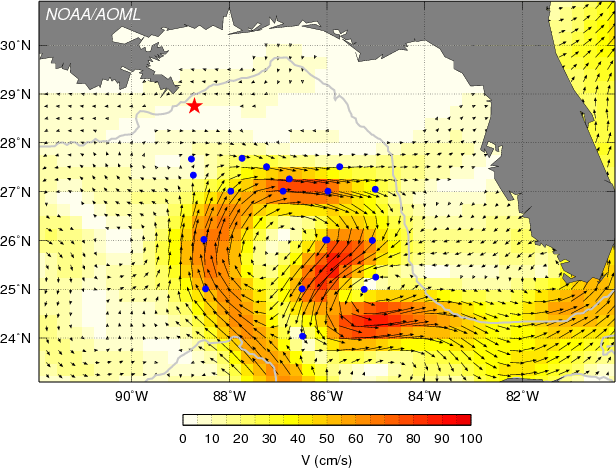Velocity and Temperature Profiles for May 18-21, 2010 ( NOAA WP-3D aircraft )
The map below shows the location of XCP observations (blue dots) deployed by NOAA/AOML and UM/RSMAS scientists from a NOAA WP-3D aircraft between May 18-21, 2010. The map also shows the geostrophic surface velocity (vectors) and speed (colors) derived from satellite altimetry observations corresponding to the date of the survey. The location of the Deepwater Horizon is denoted by a red star. Nineteen profiles were collected over the Loop Current, shown by the large values of surface currents (orange and red colors). Click on the blue dots on the map to display the profiles.
